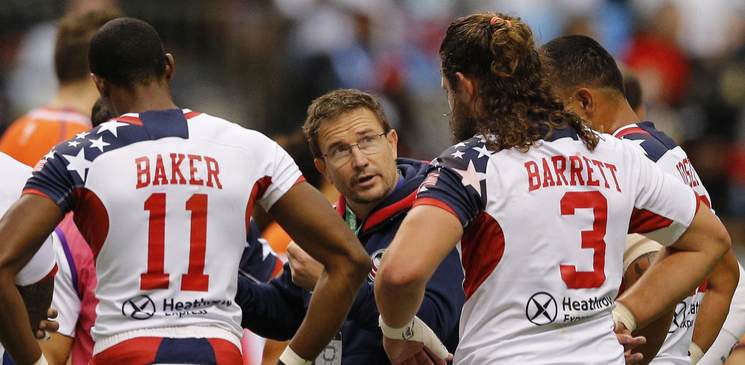
Pre-season is traditionally a time when players can make significant gains in their physical fitness. Pre-season for amateurs is typically 12-14 weeks. Professionals might need a longer offseason block.
Rugby players need to not only gain muscle mass and strength but also focus on speed, agility and explosiveness. Rugby has changed significantly over the years and players need to be strong enough to meet the physical demands of this game. A player must be able change directions and sprint. They must also be able to execute a range of physical skills including multi-directional running, collisions, and sprinting.
This is something players must learn during the preseason. But speed is the most important physical ability. Because rugby players must be able change direction and sprint at a fast pace, they need this ability. This allows rugby players to move quickly and efficiently, allowing them to gain an advantage on the field.
The pre-season is also an ideal time to focus on hypertrophy, which means developing more muscle mass. This helps to prevent injuries. The goal is for players to be able to play at their best in each game.

Rugby players also need to perform strength training during the pre-season. Typically, strength training is done by lifting weights or performing explosive exercises, such as plyometrics. These activities can help you develop explosive force and more power.
FAQ
Are extreme sports expensive?
Yes. Extreme sports equipment costs thousands of dollars. People who take part in these activities don’t need much.
Do kids have to try extreme sports?
The answer depends on whether you discuss sports as a whole or individual sporting activity. If they are talking about all sports, they should consider them. It would be different if they were talking about skiing or other types of sports. Some people prefer extreme sports like bungee jump, while others prefer gentler ones like downhill skiing. It all depends on the risk involved. Skydiving is not something that someone who enjoys bungee jumping would enjoy if they were afraid of heights.
What could go wrong in extreme sports?
There are many situations that could occur when you take part in extreme sports. It could be a fall from cliffs, an injury, or even being caught on camera by the media.
However, if you are aware and take precautions, it should not be a problem.
All you need is the right equipment, and the proper knowledge to use it.
If you get hurt in an extreme sport you can always count on someone to help you. If you get hurt, you'll be treated by medical professionals.
Sometimes injuries can happen without warning. Sometimes, poor judgement can cause injuries.
For instance, climbing too close to a cliff edge may slip over the side. Hypothermia can also occur if you plunge into icy waters.
Sometimes, mistakes of others can lead to accidents. In some cases, injuries can be caused accidentally by other parties.
Sometimes bad luck can lead to unfortunate events. As you fall, you might hit a boulder. Sometimes, lightning strikes you.
What skills are required for extreme sports?
To become proficient in any extreme sport, you must practice every day.
Practice includes learning new moves and tricks. This will allow you to improve your performance.
You must also master basic safety rules before trying anything new.
For example, you should always wear protective gear such as helmets. Keep your distance from others.
Stunts should not be performed without a spotter. A spotter watches over you during your stunt.
Statistics
- Since 1998, overall participation has grown nearly 25% - from 5.2 million in 1998 to 6.5 million in 2004. (momsteam.com)
- Nearly 98% of all "frequent" roller hockey participants (those who play 25+ days/year) are male. (momsteam.com)
- Nearly 40% of all mountain bikers have at least graduated from college. (momsteam.com)
- Boxing— 90% of boxers suffer brain damage over their careers, and this is not surprising in the least, considering that they are throwing punches at each other's heads. (rosenfeldinjurylawyers.com)
- According to the United States Parachuting Association, about 21 people die yearly from skydiving. (livehealthy.chron.com)
External Links
How To
How can you master parkour skills?
Parkour is a free running technique where people run through obstacles such as walls, buildings, fences, trees, etc. Parkour is a highly popular sport that has millions of participants. Parkour is a variety of techniques that include wall climbing (freestyle), obstacle course, urban exploration and rescue, freerunning, urban combat and many others.
Any activity that improves your overall health and physical fitness is called fitness. You can exercise at the gym, do cardio exercises, or just go for a walk. Parkour is considered to be a sport as it requires the athletes to use their body strength.
Here are some tips for beginners who want to start training parkour:
-
Places that can cause injury or stairs should be avoided. Flat ground is best, so avoid hills. However, if you have the ability to climb up a tree then do so.
-
Proper footwear is made of leather or rubber. If you're not sure what shoe will work best for your feet, feel free to try them all. A parkour session can be made or broken by the right shoes.
-
Keep hydrated during practice sessions by bringing water bottles and snacks.
-
Before starting a parkour session, warm up first. Warming up means that you need to warm up before you can get into the action. You can start slow and increase the intensity gradually until your muscles are fully prepared.
-
Do not rely too much on your arms and legs when jumping. Instead, use your core and back muscles more to overcome obstacles.
-
You shouldn't be pushing yourself too hard. Take breaks every now and again. This will help you recover from your workout without getting hurt.
-
While practicing parkour, listen to music. Music helps to relax and help you concentrate.
-
Stretch your muscles, joints and ligaments after each session to avoid injury.
-
Keep your surroundings clean, especially when you are practicing in public places. This will ensure that you don't cause harm to anyone else.
-
Keep track of your progress and keep a record of it in a notebook. This way, you'll always remember your strengths and weaknesses.
-
Parkour is fun! So enjoy the process and never let the fear of falling hold you back. Don't be discouraged if you fall.
-
Everyday, you learn new tricks and techniques.
-
Make sure to eat healthy food. Consuming a high-protein diet will allow you to gain muscle mass more quickly.
-
You should find a mentor. Mentors usually teach you how to make certain moves, and they also advise you about improving your skills.
-
Do not be afraid of asking questions. The people who love to share their knowledge with others are always happy to answer questions.
-
Practice makes perfect. Train whenever you can.
-
Have fun
-
Last but not less, remain safe!